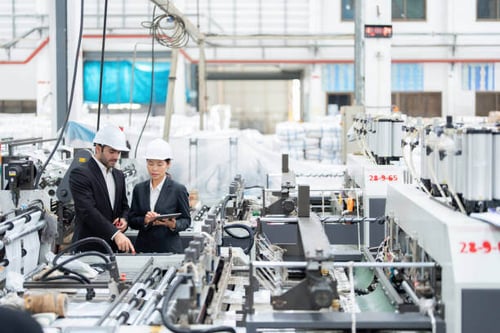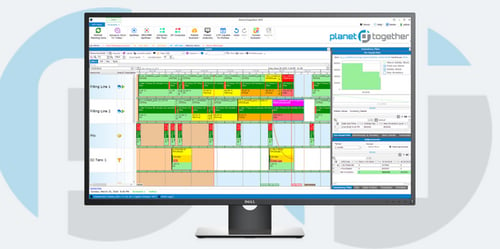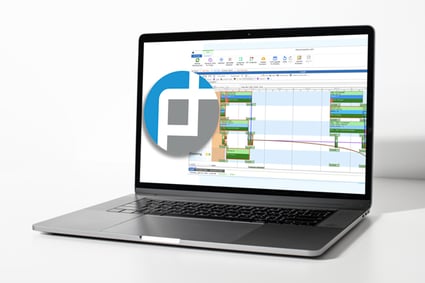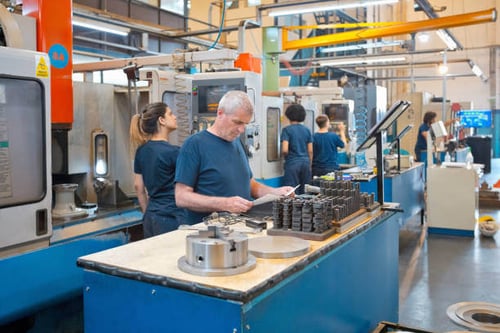Improving Production Reliability and Output Quality in Industrial Manufacturing with PlanetTogether APS Integration
In industrial manufacturing, maintaining high production reliability and output quality is critical for operational success. As the industry evolves, Manufacturing IT Managers face mounting pressure to integrate advanced technologies that enhance productivity and quality standards. Integrating PlanetTogether Advanced Planning and Scheduling (APS) with leading Enterprise Resource Planning (ERP) systems such as SAP, Oracle, Microsoft, Kinaxis, and Aveva offers a comprehensive solution to these challenges.
This blog explores how such integration improves production reliability and output quality, ensuring industrial manufacturing facilities stay competitive in a rapidly changing landscape.

The Need for Reliable Production and High Output Quality
Industrial manufacturing demands precision, efficiency, and high-quality output. Unplanned downtimes, production bottlenecks, and quality inconsistencies can significantly impact bottom lines. Manufacturing IT Managers are tasked with implementing solutions that mitigate these risks while ensuring seamless operations.
PlanetTogether APS addresses these challenges by offering real-time scheduling, capacity planning, and resource optimization. When integrated with ERP systems like SAP, Oracle, Microsoft, Kinaxis, and Aveva, it enhances production workflows, ensuring reliability and consistent output quality.

Key Benefits of Integrating PlanetTogether APS with Leading ERP Systems
1. Real-Time Data Synchronization
Integration with SAP, Oracle, Microsoft, Kinaxis, and Aveva ensures that data flows seamlessly between systems. Real-time synchronization eliminates data silos, providing accurate and up-to-date information for production planning and execution.
Example: A leading industrial manufacturing facility integrated PlanetTogether APS with SAP, resulting in real-time visibility into inventory levels, production schedules, and machine availability. This integration reduced production delays by 30% and improved on-time delivery rates.
2. Enhanced Production Scheduling
PlanetTogether APS offers dynamic scheduling capabilities that adapt to changing production demands. Integration with ERP systems ensures that schedules align with supply chain activities, material availability, and labor resources.
Example: An industrial manufacturer using Oracle ERP integrated PlanetTogether APS to manage complex production schedules. This integration minimized scheduling conflicts and optimized resource utilization, enhancing production reliability.
3. Improved Quality Control
Quality management modules within ERP systems, when integrated with PlanetTogether APS, enable proactive quality control measures. Production data is continuously monitored, allowing for immediate adjustments to maintain quality standards.
Example: A facility using Microsoft Dynamics integrated PlanetTogether APS to track production metrics. Quality deviations were detected early, reducing defect rates by 25%.
4. Advanced Analytics and Reporting
Integration with systems like Kinaxis and Aveva provides advanced analytics capabilities. Manufacturing IT Managers can access detailed reports on production performance, identify trends, and make data-driven decisions to enhance reliability and quality.
Example: An industrial manufacturer integrated PlanetTogether APS with Aveva, leveraging its analytics to identify production bottlenecks. Data-driven insights led to process improvements, increasing overall equipment effectiveness (OEE) by 20%.

Implementation Strategies for Seamless Integration
1. Assess Current Systems and Identify Gaps
Conduct a thorough assessment of existing ERP systems and production processes. Identify gaps that PlanetTogether APS integration can fill to improve reliability and quality.
2. Collaborate with Stakeholders
Involve key stakeholders from IT, production, and quality departments. Collaborative planning ensures that integration aligns with organizational goals and operational needs.
3. Opt for Scalable Integration Solutions
Choose integration solutions that are scalable and flexible. This ensures that the integration can grow with your facility’s needs and adapt to future technological advancements.
4. Provide Comprehensive Training
Invest in training for staff to ensure they are proficient in using integrated systems. Effective training enhances user adoption and maximizes the benefits of integration.
Challenges and Solutions in Integration
Challenge 1: Data Inconsistencies Solution: Implement data validation protocols to ensure consistency across systems.
Challenge 2: System Compatibility Issues Solution: Use middleware solutions to bridge compatibility gaps between PlanetTogether APS and ERP systems.
Challenge 3: Resistance to Change Solution: Foster a culture of continuous improvement and provide incentives for staff to embrace new technologies.
Improving production reliability and output quality is paramount for industrial manufacturing facilities. Integrating PlanetTogether APS with leading ERP systems like SAP, Oracle, Microsoft, Kinaxis, and Aveva provides a robust solution that enhances scheduling, quality control, and data analytics.
For Manufacturing IT Managers, this integration is not just an operational upgrade but a strategic move towards achieving excellence in production reliability and quality. Embrace the future of industrial manufacturing with seamless integration and drive your facility towards operational success.
Are you ready to take your manufacturing operations to the next level? Contact us today to learn more about how PlanetTogether can help you achieve your goals and drive success in your industry.
Topics: Industrial Manufacturing, PlanetTogether Software, Integrating PlanetTogether, Improved Quality Control, Enhanced Production Scheduling, Achieve Real-Time Data Synchronization





















LEAVE A COMMENT